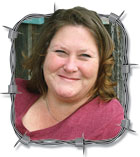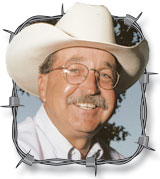 Happy Beef Month!
Happy Beef Month!
The Ozarks is home to many, many cattle operations of various sizes that utilize a variety of breeds and management practices.
Angus to Zebu, grain fed and finished, grass-fed and finished, GMO and non-GMO, organic or non-organic, vaccines or no vaccines; you name it, we’ve got it in the Ozarks. That diversity is what makes the region unique. While the types of cattle we raise and the way we raise them may differ, we’re all in the business together and in today’s society, we need to stand together for our industry.
While I’m not a fan of their misguided mission, we in the agriculture industry should take a page from the book of animal-rights advocates.
These organizations are investing time and money to fight animal agriculture, and they pound the pavement to get their propaganda out to the masses, and their antics usually get them a little airtime on the TV news or ink in the local newspaper. Why? Because they are typically causing some kind of commotion or ruckus, which creates chatter in the community. I read a news story the other day about two people, including a 15-year-old girl, who were arrested for chaining themselves to a gate at the California Polytechnic State University (Cal Poly) meat processing center in an attempt to stop the slaughter of an animal by the university’s animal science program. The story spread like a wildfire and the teen is being hailed as a champion for animals and a hero… a hero who trespassed, disturbed the peace, was disrespectful to law enforcement and caused an educational program to be halted.
You never hear a TV news report about Farmer Frank staying up all night to make sure his first-calf heifer calved out without any trouble, or that Rancher Rick spent thousands of dollars to make sure his cows and calves had plenty to eat and drink in the winter months. Those stories just aren’t “sexy” enough. While they might not make headlines or the 6 o’clock news, guys and gals like Frank and Rick will always be my champions.
Maybe we in the agriculture industry should be more aggressive in our advocacy and be more proactive in getting our message out. We have great agricultural organizations around the nation that are putting up the good fight, but what can we do in our local communities?
We can start by sharing how the beef industry works with our friends and neighbors who aren’t involved in agriculture. We can explain that we care about the well being of our livestock and want to produce the best product we can because our families are also consumers.
We also need to educate ourselves about our industry so we can answer questions raised in a factual manner and to the best of our ability. Being armed with the right information is always the best defense.
I have spoken to several groups over the years about agriculture and it always surprises me how many people will throw out phrases like “factory farms,” yet they can’t give a definition of what a “factory farm” is. There’s also at least one person who claims, based on the prices they pay in the store for beef, that cattle producers are getting rich. When I hear that, I like to pull out the latest market report and share just how much producers actually get paid for their cattle, then start deducting the costs to raise that calf. At the end of the event, one or two people will usually thank me for the information and say they have learned something new. To me, that’s a big win for agriculture.
Will the agriculture debate ever be put to rest? It’s not likely, but if we continue to present honest and truthful information to the public, we will slowly chisel away at the anti-ag agenda.
Julie
Julie Turner-Crawford is a native of Dallas County, Mo., where she grew up on her family’s farm. She is a graduate of Missouri State University. To contact Julie, call 1-866-532-1960 or by email at [email protected].






